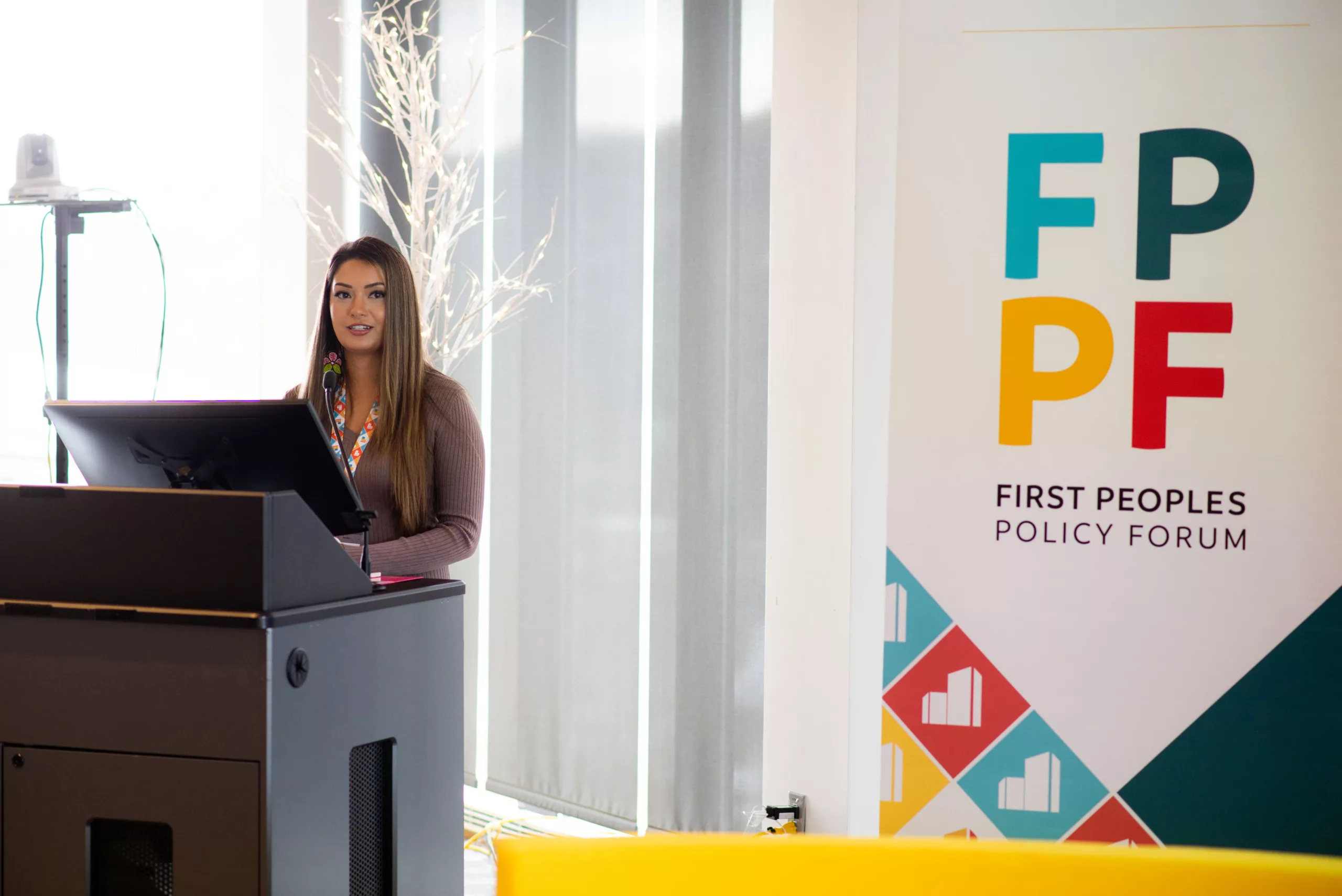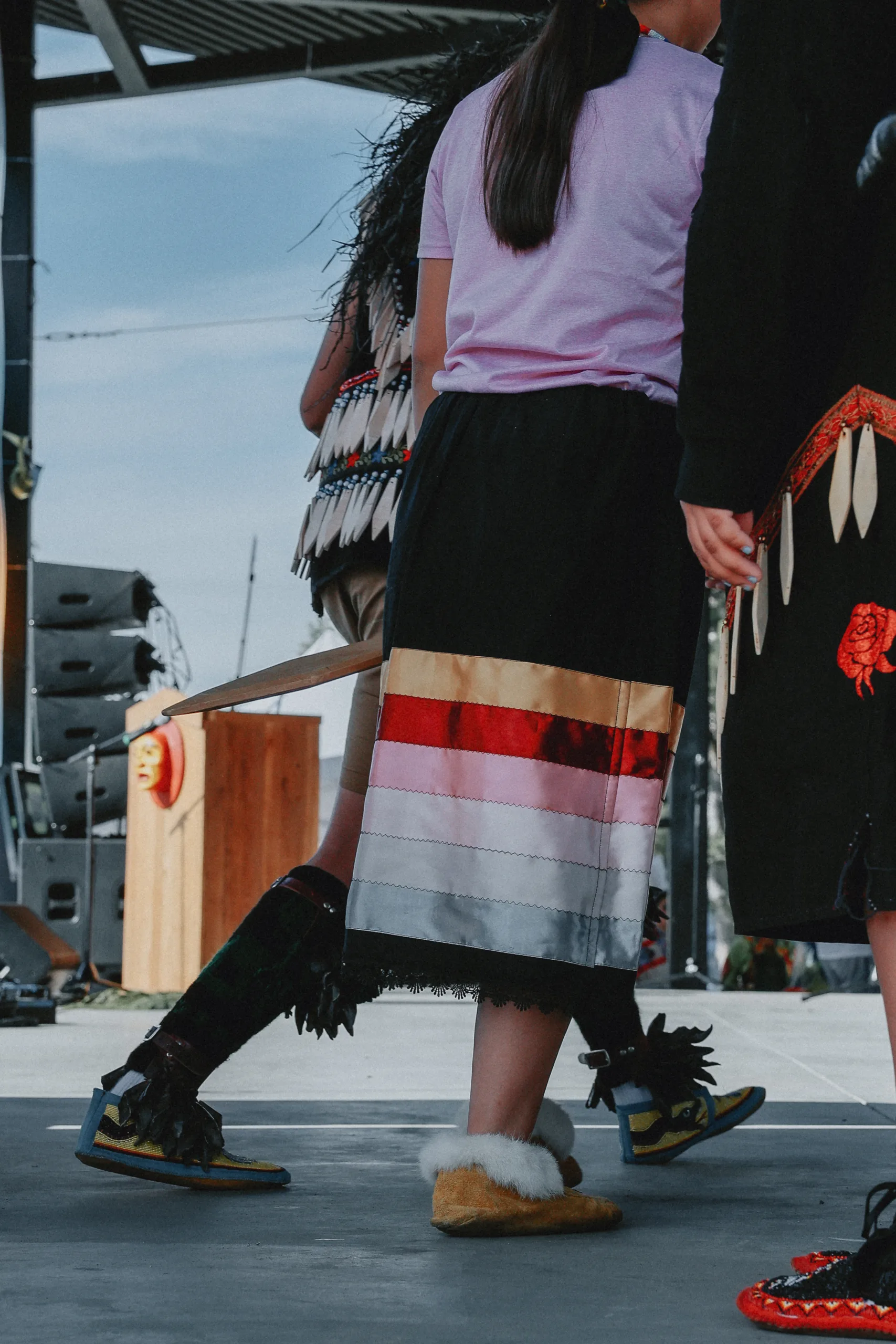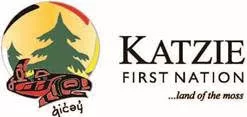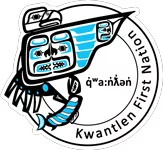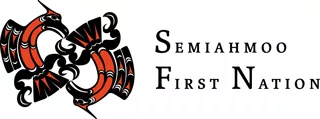The forum aimed to raise awareness about mobilizing UNDRIP in urban Indigenous communities across Turtle Island, an effort SUILC and Skookum have been advocating for in the City of Surrey
Ravina Morgan, Skookum Surrey Indigenous Innovation Coordinator, was invited to The First Peoples Policy Forum to present on the work Surrey Urban Indigenous Leadership Committee (SUILC) and Skookum Surrey have been doing with the urban Indigenous community in Surrey.
On behalf of the SUILC, Morgan talked about the work of Skookum Lab and also Skookum Surrey. Morgan’s presentation elaborated on SUILC as a coalition and the social innovation Skookum Lab and Skookum Surrey have undertaken.
“My presentation highlighted the Indigenous social innovation methodologies that we used during [Skookum] Lab and what we are carrying on in the spirit of Skookum through Skookum Surrey,” says Morgan.

The First Peoples Policy Forum brought Indigenous people, academics, policymakers and urban Indigenous leaders to explore ideas about mobilizing Indigenous sovereignty through the United Nations Declaration on the Rights of Indigenous Peoples (UNDRIP).
The forum aimed to raise public awareness about issues that matter to Indigenous people and provide advice to the government based on community-driven policy solutions.
“In partnership with the Assembly of First Nations, Office of the Regional Newfoundland and Nova Scotia, First Voice held its inaugural First Peoples Policy Forum in St. John’s Newfoundland and Labrador,” says Chad Bedard.
Chad Bedard, a member of the Haida Nation and Research Coordinator at First Light Indigenous Friendship Centre, works directly with the First Voice Urban Indigenous Coalition in Saint Johns, Newfoundland. Bedard reached out to SUILC because he was very impressed with its work to advocate for the implementation of UNDRIP for the Surrey urban Indigenous community.

In 2021, SUILC released a report titled Implementing UNDRIP in B.C.: Perspectives of the Urban Indigenous Community in Surrey. The report described the urban Indigenous population in Surrey, as well as the priorities of the urban Indigenous community in Surrey, and ways the urban Indigenous community can be supported through the Declaration Act in British Columbia.
“Once we learned that Surrey was working to implement UNDRIP for the urban Indigenous community based on the work of SUILC and Skookum, it was a no-brainer to reach out. We recognized SUILC and Skookum as organizations with similar experience to ours, being both in community and lobbying governments for policy change for urban Indigenous people,” says Bedard.
Skookum Surrey was formally Skookum Lab, and Skookum Surrey continues to nurture the work that Skookum Lab started.
“Skookum Lab was a three-year research project that engaged urban Indigenous people about reducing Indigenous child poverty in the City of Surrey. Skookum Lab held a Sunset event to acknowledge the end of Skookum Lab in June 2020,” says Morgan.
“We didn’t want to stop doing that work [of engaging the urban Indigenous community in Surrey]. We didn’t just want to let go because it is so needed. So, we decided to rename Skookum Lab to Skookum Surrey to cultivate and continue to create and bring people together.”

During her presentation, Morgan also shared about the Guide Groups and Campfires, the social innovation methodologies, that have been successful in engaging urban Indigenous people in Surrey to better understand their circumstances and desires for a better experience of Indigenous people in Surrey.
Guide Groups originally started as safe spaces for Indigenous people to share their lived experiences with similar people during Skookum Lab, now, Guide Groups have been integrated into Skookum Surrey as a way for folks to discuss life while doing cultural activities. Members of the guide groups have also been able to create community and networks of care.
The Campfire gatherings are Skookum’s indigenized social innovation design lab. A design lab is a process that convenes key change agents to create innovation solutions. Both the Guide Groups and Campfires are community-led by the Indigenous people in Surrey.
“I enjoyed sharing about our work and especially the fact that it’s all been community-led and guided by our urban Indigenous community in Surrey,” says Morgan.
The City of Surrey is a large geographical region. During the forum, Morgan heard about large cities across Turtle Island that have multiple services spread throughout the city, unlike the City of Surrey, where she hopes to improve cultural outreach throughout Surrey’s many neighbourhoods.
“I learned that many large cities across Turtle Island with a large urban Indigenous population have several Indigenous service agencies operating all across those cities. This is something that I would like to see happen here in Surrey someday,” says Morgan.

“Most of the urban Indigenous service providers and cultural activities take place in North Surrey and there is nothing for the urban Indigenous community in South Surrey.”
While Morgan shared the great work that SUILC and Skookum Surrey has done over the years, she also came away with a deeper appreciation for community-led advocacy for urban Indigenous people and inspiration for what could be possible in Surrey.
“My biggest takeaway from the event was the power of bringing people together with a shared interest in improving the lives of urban Indigenous people,” says Morgan.
“Every community is so unique and has its own strengths and challenges. It was powerful to see how our social innovation strategies resonated with other communities who have the same hopes and dreams as we do.”
